I am working on an extension to display downloads on a website. You can view the full, current source over on GitHub.
Given this piece of code in my controller:
$linkName = Tx_Downloads_Utility_Filename::construct( $download );
$download->setLinkText( $linkName );
This is where I want to set the label for a download. Sadly, when it is later rendered, the result will be blank if $linkName contained an umlaut (umlauts were just my test subject, the actual scope is unknown).
For debugging purposes, I have extended that section to look like this:
$linkName = Tx_Downloads_Utility_Filename::construct( $download );
$download->setLinkText( $linkName );
$this->flashMessages->add( "'" . strlen( $linkName ) . "'" );
$this->flashMessages->add( urlencode( $linkName ) );
$this->flashMessages->add( $linkName );
The resulting output of that is:
 Please note that no third flash message is rendered.
Please note that no third flash message is rendered.
But it's not like no umlauts would be rendered. For example, this is the record I am debugging with:

The link field (between the image icon and the 31.06KB) is blank but should say Text_File_Sömething.jpg. The string Sömething is rendered perfectly fine in another place of the template.
Is the problem with my Fluid template?